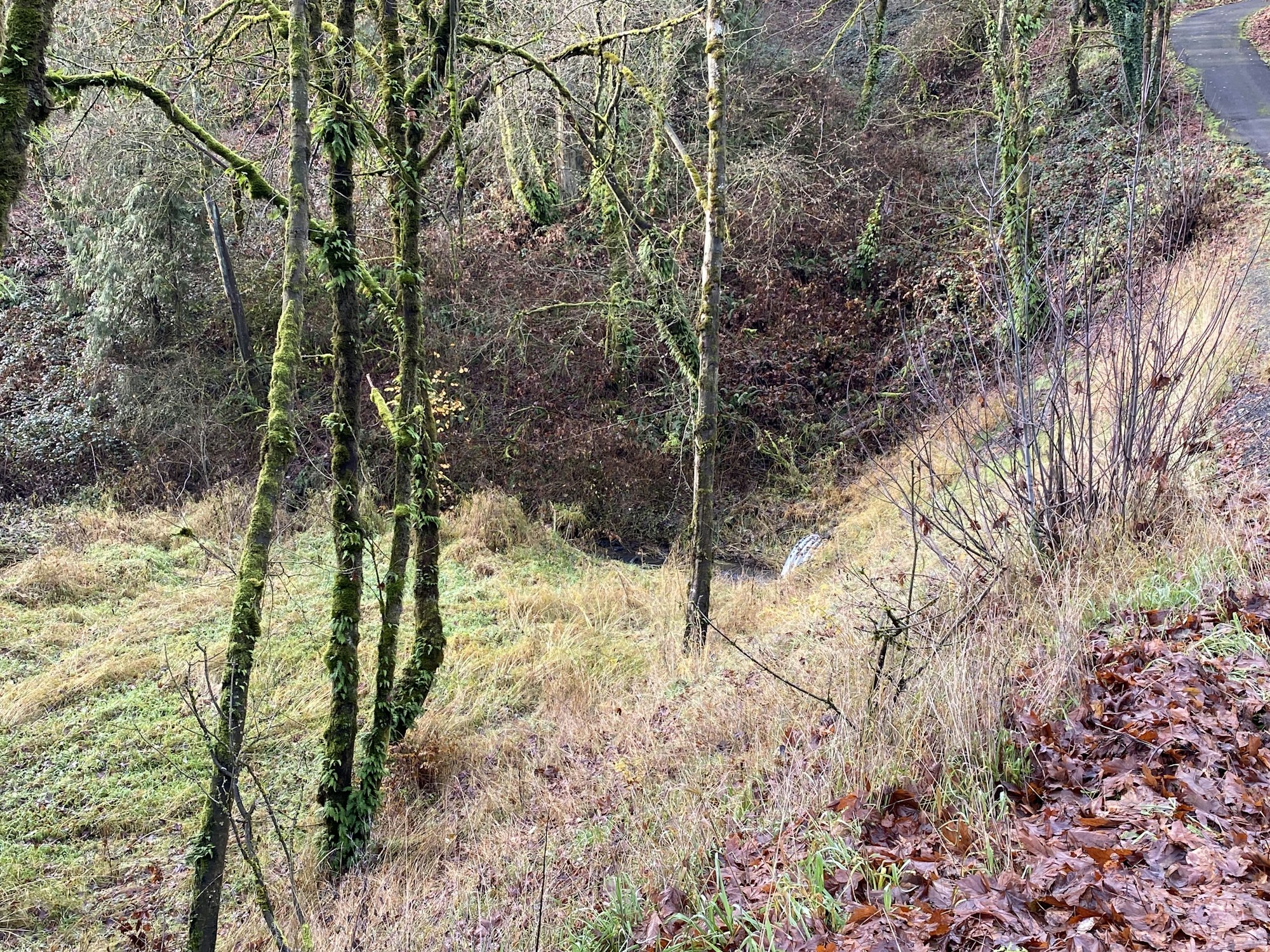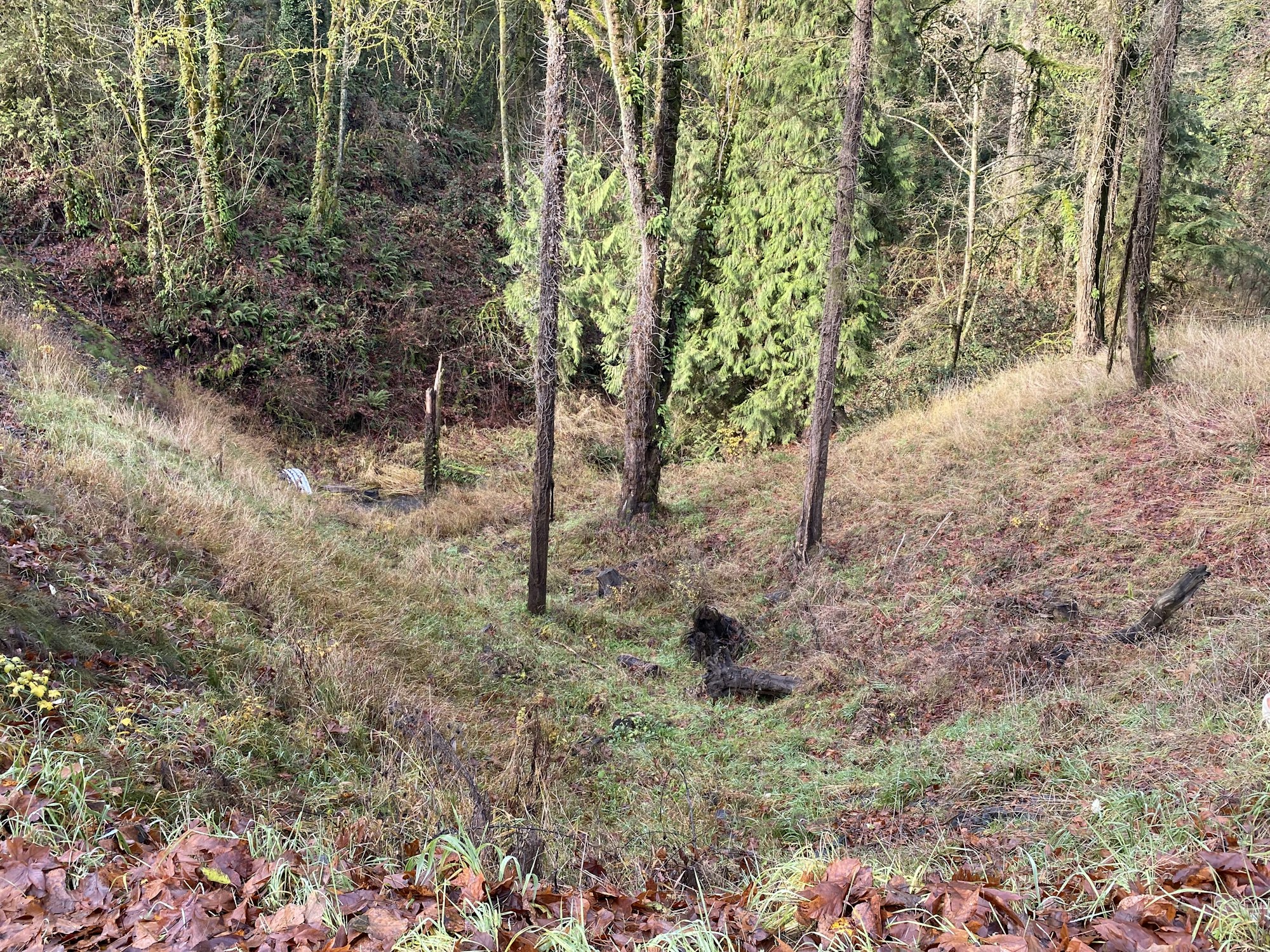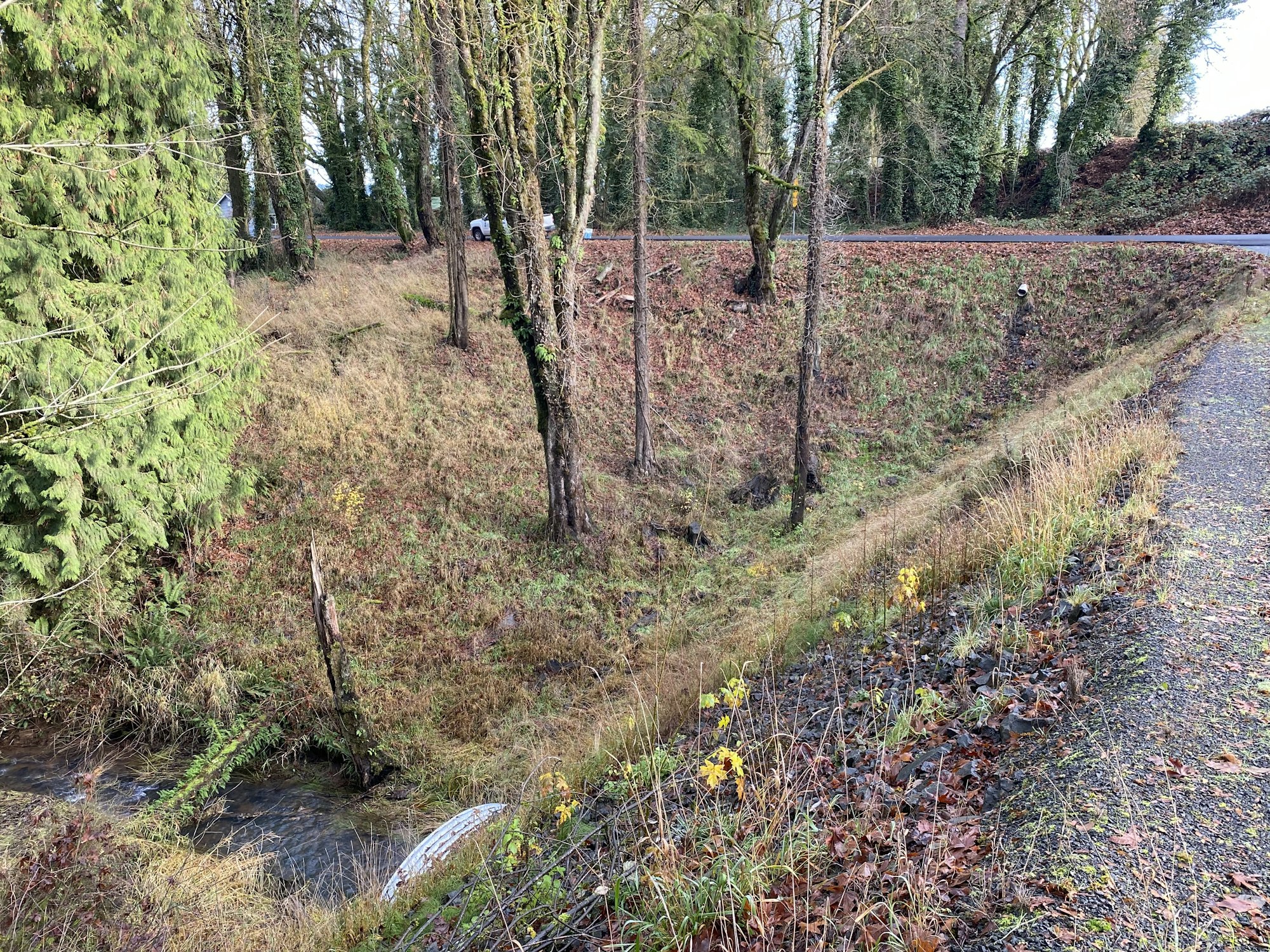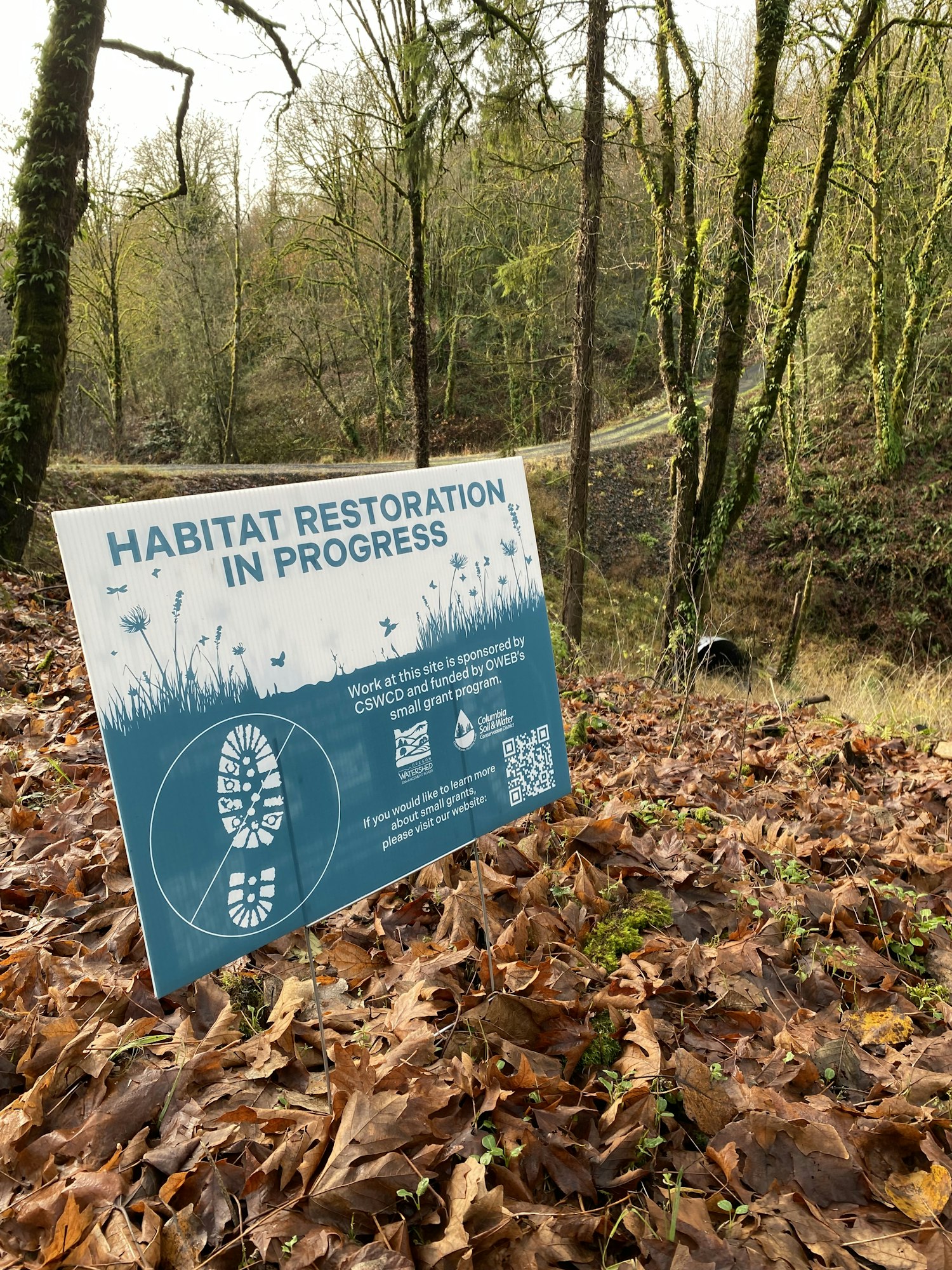McBride Creek Riparian Revegetation
McBride Creek is a known habitat for Endangered Species Act (ESA)-listed Lower Columbia River Coho and Steelhead salmon, as well as Coastal Cutthroat Trout and Pacific lamprey.
In the summer of 2021, the landowners replaced a failed culvert beneath their driveway. The recent construction resulted in a total lack of vegetation on the eastern streambank at both ends of the culvert and a bare spot on the western streambank at the culvert’s outlet. Revegetation at this site will stabilize soil erosion, improve riparian health, and future large wood recruitment. Furthermore, native plant establishment will improve water quality by filtering runoff, increasing groundwater exchange, and providing shade to reduce thermal loading.
Location: The project is located on private land along McBride Creek in Columbia City, OR.
Partners: The Oregon Watershed Enhancement Board (OWEB), Private Landowners (2)
Funding: The Oregon Watershed Enhancement Board (OWEB)
Awarded Amount: $14,493.00
Project Timeframe: February 2022 - January 2024
Background:
In February 2021, the culvert "boxcar" installed beneath the landowners' driveway failed. Later that year, the crossing was replaced with a bottomless arch culvert, which met OR. Department of Forestry fish passage standards. The SWCD was contacted to assist with the revegetation of areas disturbed by the construction activities. This included ~ 1 acre of riparian area around McBride Creek.
Work Done:
The Columbia SWCD oversaw the restoration of disturbed areas due to culvert replacement by planting native plants and conducting weed treatments. This work focused on McBride Creek, an important habitat for salmon, including the ESA-listed Lower Columbia River Coho. Planting native trees along the stream will provide shade, lower water temperatures, and contribute organic material to the ecosystem. Increasing native plant diversity supports climate resilience and wildlife habitat. The project also aimed to improve water quality by using native filtration species and seeding drainage paths with native grasses and ferns for stability.
In Summary:
The goal of this project was to replant recently disturbed areas caused by road and culvert replacement work. The Columbia SWCD oversaw the installation of ~2,200 plants along a streambank on McBride Creek. As a part of this project, weed treatments were performed on Himalayan and English ivy throughout ~1 acre along the streambanks. Native sedges and rushes were installed as a filter strip for runoff from a drainage pipe beneath Smith Road, that flowed directly into McBride Creek. The problems addressed include lack of streamside vegetation, encroachment of invasive vegetation in riparian and forest areas, lack of biodiversity, and water quality concerns.






















